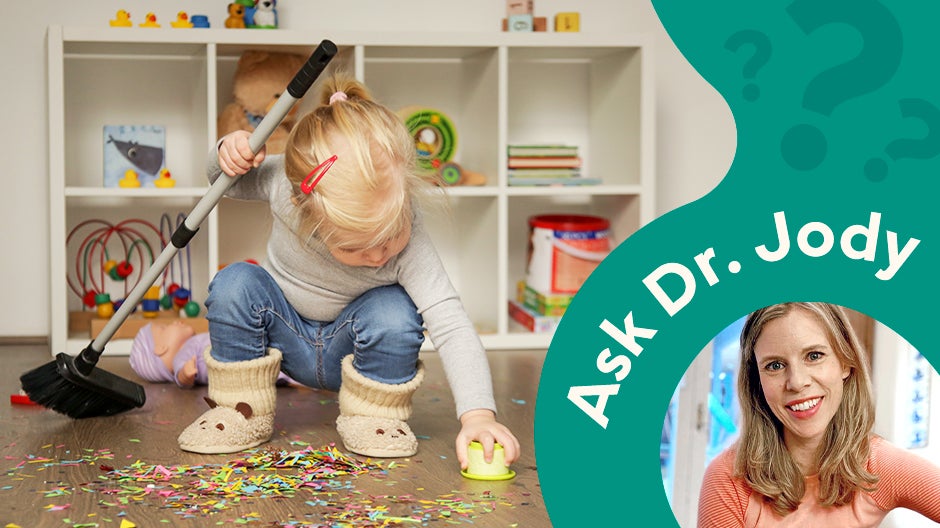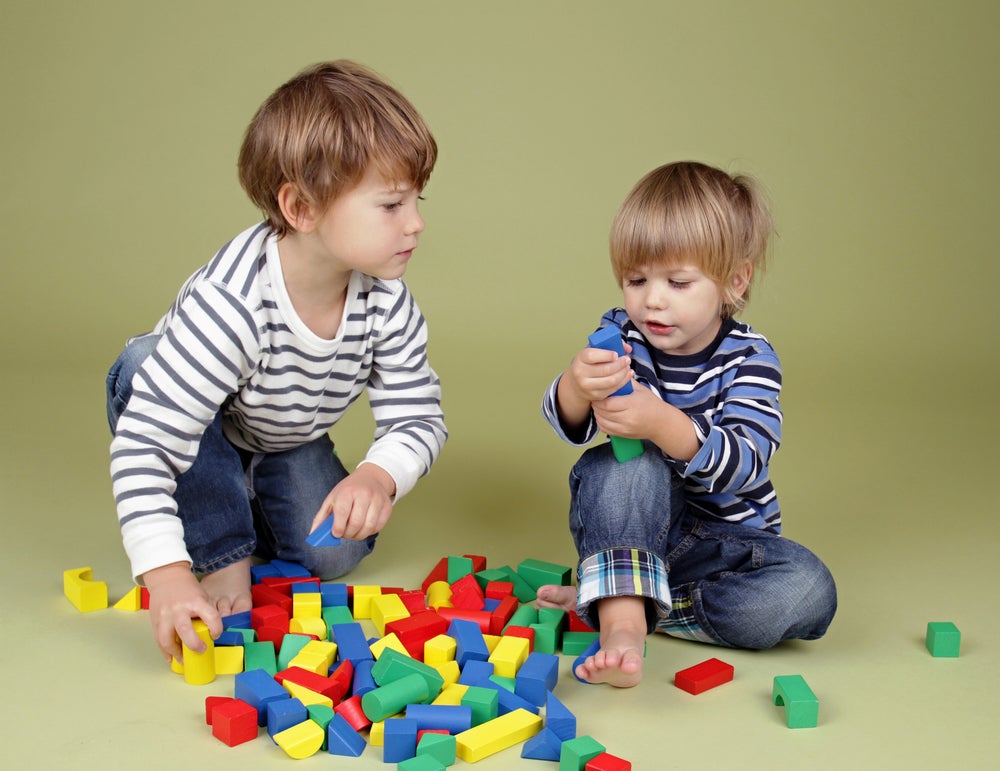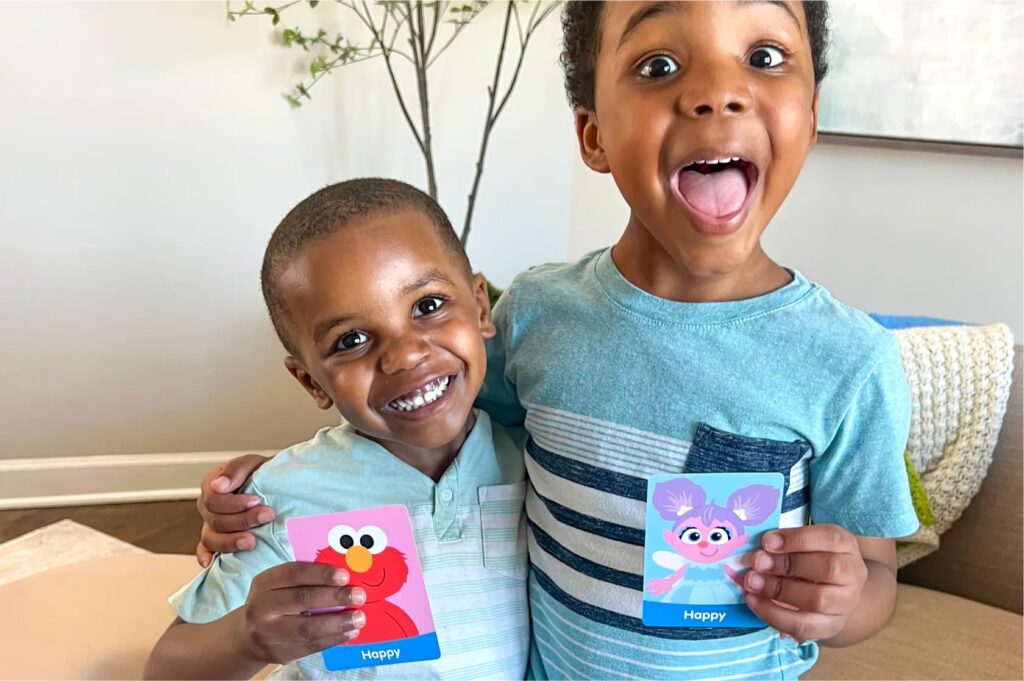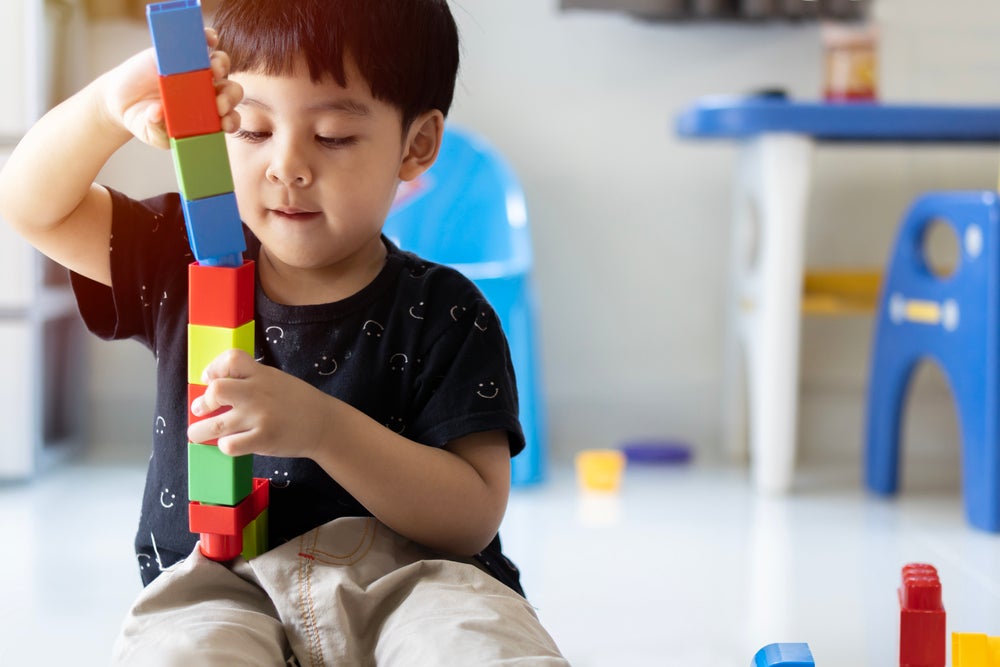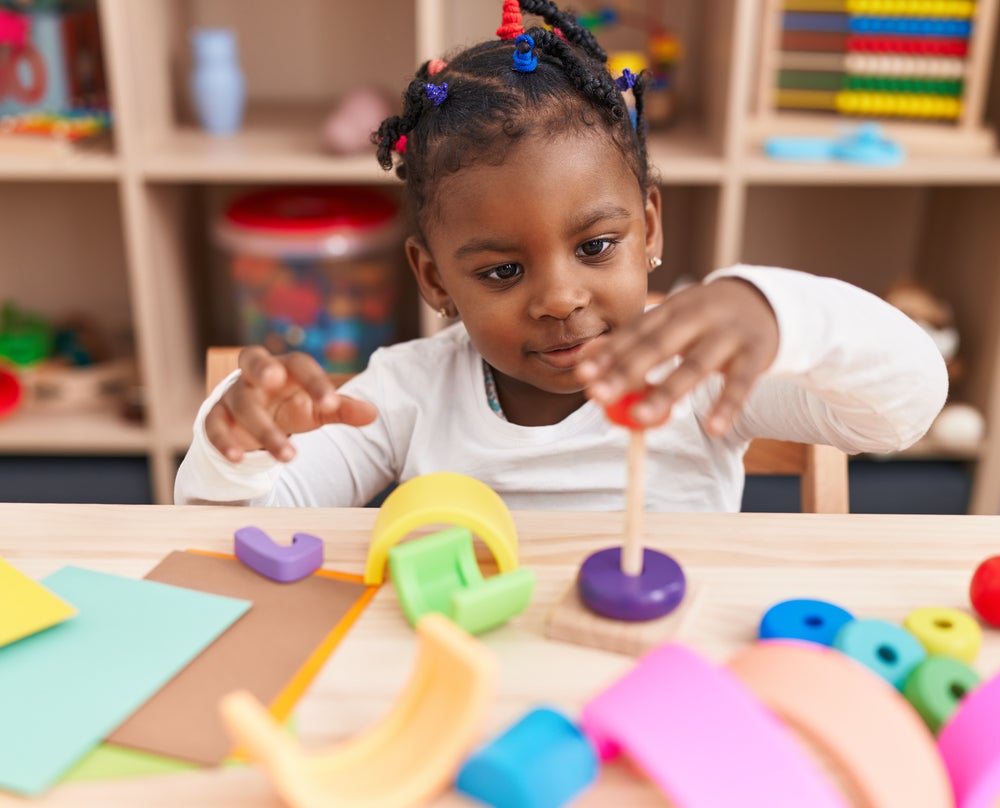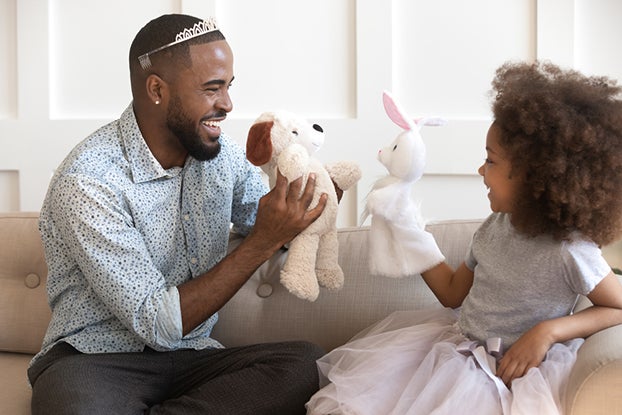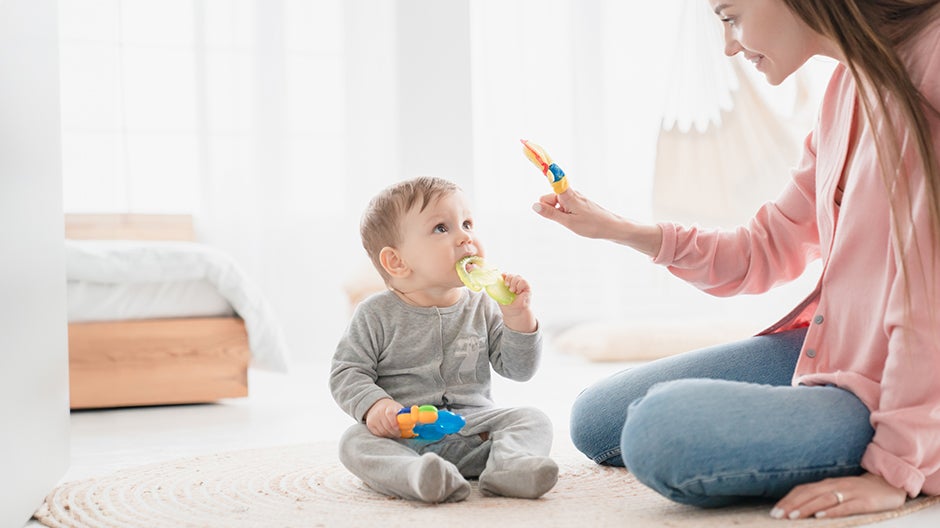I love this question because it signals your interest in having your child contribute in meaningful ways to your overall family dynamic, and it shows that you care about taking your child’s developmental needs and abilities into account. Well done!
The Short Cut
- Kids can start doing simple chores as soon as 12–18 months, when they can hold a toy and put it away
- Framing chores as acts of love and gratitude toward the home and family (and doing them together) can help get kids interested in them
- Age-appropriate chores help kids grow through building Core Skills, Character, Critical Thinking, and more
If we think about “age-appropriate chores” in the broadest sense, they can be anything necessary for your family and household to operate as you’d like. That means your child can begin helping (a little!) as soon as they’re able to move independently while holding a small object.
For most children, that means they’re ready to start helping out between the ages of 12 months and 18 months, when they can carry a toy and place it back into the bin or toy box in which it belongs. There’s no need to frame this up as a “chore” though—by singing a “clean up” song and working alongside you, your child can learn to tidy up after playtime in a way that feels fun and collaborative.
When it comes to talking about chores with your kids, you might consider framing all “chores” as things we do to show our love for each other and gratitude for our home, as opposed to tedious tasks we can’t avoid.
That doesn’t guarantee the chores will always feel that way (for them or you!), but it can go a long way.
What Are Some Age-Appropriate Chore Ideas?
Chores for 1-year-olds – 2-year-olds:
- Picking up toys after play and returning them to their designated spots (bins, toy box, shelf)
- Helping match clean socks after they’ve come out of the dryer
- Pushing the “Start” button on a dishwasher or washing machine
- “Sweeping” with a short-handled broom or child’s broom
These are one-step chores that are either fun to mimic (children love sweeping for some reason, even though they may end up making more of a mess), or have immediate payoffs (hearing the dishwasher turn on after they’ve pressed the button, or making a pair of socks once they’ve found its match), which is great for children in this stage.
Chores for 2-year-olds – 4-year-olds:
- Setting the table at mealtime (with non-breakable items such as cutlery and plastic cups)
- Supporting cooking and baking with simple tasks such as washing vegetables, gathering the right spices from the cabinet, or counting the potatoes
- Sorting clean laundry into bins for each member of the household
Kids in this age range can also keep doing the chores appropriate for younger kids, as well as one- or two-step tasks involving anything they can reach, carry, and lift safely.
As with younger children, kids in this age range often desire to help, so making the activities fun, praising them for their efforts, and modeling language of gratitude (such as “I am so grateful for how you’re helping us today”) can all work to reinforce the experience and make it more likely your child will want to help again in the future.
Chores for 5-year-olds – 6-year-olds:
- Making their bed
- Folding laundry and/or putting laundry away in the correct drawer or bin
- Light yard work, such as picking up outdoor toys and raking leaves
- General tidying
- Dusting and wiping reachable surfaces
As with all age ranges, recognizing effort over perfection and end results for kids this age is key. There’s a strong chance you’ll need to re-do some of your child’s work (hopefully when they don’t notice), but the fact that they’re engaged and pitching in, and that they’re learning the required skills, is what’s really important for their development.
Chores for 7-year-olds and up:
- Light meal prep and collaboration (such as mixing a salad, buttering bread, stirring sauces) with support and supervision
- Cleaning up their room
- Emptying garbage cans
- Helping to make their school lunches
- Pet care, such as walking the family dog with you, or putting cat food in the bowl
- Sweeping and mopping the floor
By early elementary school, your child will likely be able to contribute to more complex tasks and even “own” them on a regular basis that helps to establish a routine and expectations.
Should I Pay My Child for Chores?
In my home, chores are not compensated via an allowance. Rather, chores are framed as things we do to take care of each other and our home—that’s what works for us. (No judgment here if offering some type of reward or compensation is what works in your household!) By providing age-appropriate chores to your child, you’re giving them an opportunity to learn key life skills and to share their talents with others.
If you do find it helpful to reward or incentivize your child to do chores, you might consider something like a sticker chart, a dance party with your child’s favorite song, or a special handshake.
Why Are Age-Appropriate Chores Important?
Giving your child age-appropriate chores does more than just give them useful life skills (although that would be more than enough!). It also helps develop the 5 C’s at the heart of the Begin Approach to helping kids thrive in school and life.
Whether they’re developing early Critical Thinking skills as they match socks, Core Skills in math and literacy while helping cook, or just building Character through managing the emotions that come with being asked to do something they don’t want to, kids who do chores at home are on their way to achieving their fullest potential.
To discover more about the 5 C’s and how we use them to help your child thrive, visit our other Parent Resources or check out our learning products at beginlearning.com.
